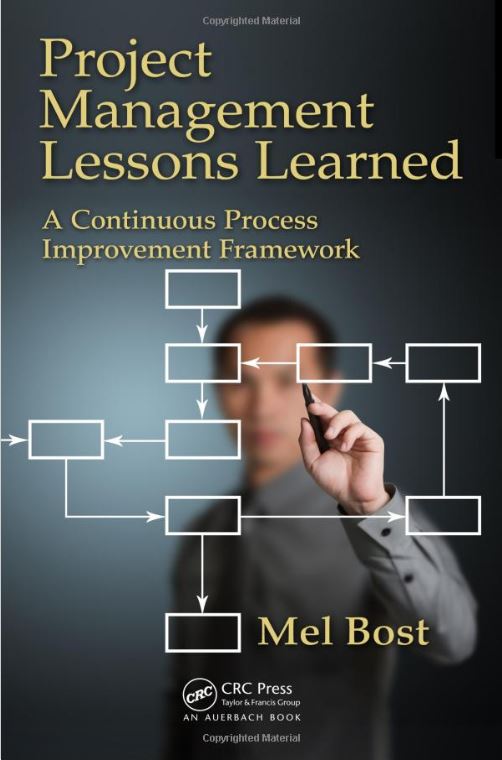 In the field project management, there are instances of what I term the “accidental” project manager.
In the field project management, there are instances of what I term the “accidental” project manager.
This expression can have several connotations, and I would like to give two examples to illustrate the characteristics of the situations.
Once again, “perspective” is important in determining which connotation you tend to conjure up; depending on your personal beliefs about what a competent project manager should look like; i.e., your background, behavior, and performance, you may have a very different idea of what it means to be a project manager.
For example, I have worked with many project organizations who exhibit the full spectrum of beliefs from “Anyone can be a Project Manager” to “Only those officially certified by the Project Management Institute (PMI) can be considered project managers.”
Believe me, there are competent project managers who exist throughout this spectrum.
Typically we define a “project” as having he following characteristics:
1. Definite Start and Finish Dates;
2. Defined Resources; and
3. Schedule, Budget, Scope and Quality Objectives.
Example No. 1:
Recently, our neighborhood’s Homeowners’ Association purchased a used “play” and “gym” set for our neighborhood park area in the subdivision. When they decided to have it delivered and installed, they were faced with the situation that they had purchased it “as is,” with no guarantees with regard to moving the set or installing it. So, they decided to look for a “project manager” among the ranks of the neighbors; i.e. someone who could oversee these tasks.
About six months prior to this, a neighbor of mine had orchestrated a backyard wedding for his daughter complete with lighting, music, and the other appropriate support equipment. The wedding was considered very successful in the neighborhood, and the father of the bride was given many “kudos” for a job well done. As the Homeowners’ Association prepared to move the play set to the park, they were informed by several residents about the success of the backyard wedding, and the “expertise” of the father in planning and executing the wedding.
The Homeowners’ Association approached the father, and gained his agreement to be the “project manager” for the “play” set move and installation.
This is one example of an “accidental” project manager. Typically it is a person who appears to have the skills necessary to take on an important task, but who has not been truly evaluated for his fit with the new task.
Example No. 2:
Over the past twenty years, as many organizations began to shift from “operational” and “initiative” work processes to using “projects” as a means of converting strategy into action in modern organizations, many of the “operations managers” were tapped to become “project managers” who to lead the organization into the new era of project planning and execution. Never mind that many of these “operational managers” had never heard of project management, a project schedule, or dedicated resources for projects, they was appointed to “make it work.”
Most of us who have worked actively in the project management field for many years have many examples of the second scenario, even in highly respected organizations. The old “chicken” versus “egg” scenario has been implemented many times. Project managers have been assigned responsibility and roles without having any project management process, standards, or procedures to use. And their training has been sorely lacking.
Typically, what happens in a situation such as this is that Management asks the question “Does anyone have any standards for project management that we can use?” And the answer typically comes back “There is a Project Management Institute with a website and Certification for project managers.”
So, how should project managers be matched with upcoming projects?
One method that I have seen successfully implemented was offered by American Express as a Best Practice through its affiliation with the Corporate Executive Council’s PMO Roundtable. They used a spreadsheet with two major parameters: (a) Competency Level of Project Managers; versus (b) Complexity of Projects.
The project group would rank the skill and competency level of its PMs at one of five levels. Each project, in turn, would be evaluated versus about 20 complexity factors. Many of the complexity factors would reflect, for example, the number of marketing regions affected, the number of internal company business units affected, environmental considerations, etc.
Now, this spreadsheet was just a tool that aided Project Group Managers to compare project managers with upcoming projects. The intent was obviously to reduce the risk of making a bad project manager decision. But, that is the case in many of these analyses.
If the Homeowners Association Board had such a tool, for example, it still might not help the Association, however, since their pool of available project managers was lacking. Their problem was just finding available candidates for volunteering.
It is hard to predict the success rate for each project manager in the two scenarios presented. It depends on a number of factors.
I would like to believe that the maturity an organization exhibits in its work processes would be indicative of the way it chooses competent project managers.
How does your organization handle this?
P.S. Now, those of you who have seen the movie “Hoosiers” would probably not consider Coach Norman Dale (Gene Hackman) to be a project manager. No one qualified him as a project manager. But he had a definite start and finish dates with the basketball season at Hickory High School, he had limited resources in terms of a team and coaches (although Dennis Hopper tuned out to be a great resource) and he had schedule, budget, scope and quality objectives to meet. Could he have been an “accidental” project manager?

Leave a Reply